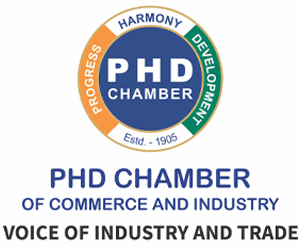India’s exports of goods and services have the potential to reach USD 2 trillion by 2030, according to a report released by the PHD Chamber of Commerce and Industry (PHDCCI) on Thursday. The report highlights the importance of measures such as comprehensive trade agreements cost reduction in capital, power, and land reforms in promoting India’s export growth.
Identifying 75 potential export products, including marine items, iron ore, chemicals, pharmaceuticals, cotton, aluminium, and tankers, the report emphasizes the need to promote these sectors to boost shipments. Currently, these products contribute USD 222 billion, accounting for 50% of India’s total exports. However, India’s share of these products in global exports stands at a mere 6%.
The report, titled “India’s Emerging Export Dynamics: Vision USD 2 Trillion Exports by 2030,” suggests that while India’s service exports have traditionally been concentrated in North America and Europe, there is ample opportunity for growth in Asia, Africa, and Latin America. To capitalize on this potential, the report suggests comprehensive free trade agreements that would diversify India’s service sector and provide a more balanced opportunity.
In addition to trade agreements, the report emphasizes the importance of reducing the cost of capital through interest rate cuts. This would stimulate domestic demand, improve the competitiveness of producers in both domestic and international markets, and ultimately contribute to higher export volumes.
Furthermore, the report acknowledges the progress made in reducing electricity-related costs but highlights the need for further improvement, as the charges per unit of power remain high. It calls for land reforms to simplify the land acquisition process, thereby enhancing the ease of doing business in India.
To support the growth of the identified 75 products, the report recommends capacity-building measures such as participation in international trade fairs, exhibitions, and buyer-seller meets. It also calls for an extension of export promotion schemes aimed at these commodities.
Sanjeev Agrawal, President of the PHD Chamber of Commerce and Industry, credits the dynamic policy environment provided by the government, along with exporters’ efforts to connect with global value chains, for the current growth in export volumes.
The report concludes by identifying emerging high-growth destinations, including Togo, the Netherlands, Brazil, Israel, Indonesia, Turkey, Australia, and South Africa, as potential markets that would further enhance India’s export growth.

